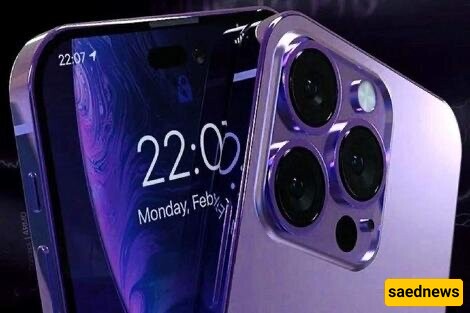It seems that Apple is planning to equip the iPhone 17 Pro models in 2025 with its proprietary Wi-Fi 7 chip.

According to Asr Iran, Apple analyst Jeff Pu has stated that the iPhone 17 Pro models will feature Apple's custom Wi-Fi 7 chip. Currently, Apple relies on Broadcom for its iPhone's Bluetooth and Wi-Fi chips.
However, Apple appears to be working on its own chip development to reduce dependence on Broadcom. Notably, Wi-Fi 7 can deliver speeds of over 40 Gbps.
Apple’s Custom Wi-Fi 7 Chip – A Threat to Broadcom?
According to a report by MacRumors, Jeff Pu mentioned in a research note that Apple's in-house chip could pose a long-term threat to Broadcom, which currently supplies a combined Wi-Fi and Bluetooth chip for iPhones.
Apple is expected to introduce its Wi-Fi 7 chip exclusively in the iPhone 17 Pro models first. Reports suggest that by 2026, this technology will expand across the entire iPhone 18 lineup. Previously, Mark Gurman from Bloomberg had also reported that Apple aims to phase out its collaboration with Broadcom by 2026.
Apple's Bigger Plan: A Move Toward In-House Hardware

Apple’s efforts to develop its own hardware are not limited to Wi-Fi 7. The company has been working for years to create its own 5G modems to reduce reliance on Qualcomm, though it has yet to succeed. Apple is also investing in micro-LED displays for its future devices.
With Wi-Fi 7, the iPhone 17 Pro models will be able to simultaneously transmit and receive data across the 2.4GHz, 5GHz, and 6GHz bands, ensuring faster speeds, lower latency, and more reliable connectivity. Qualcomm claims that Wi-Fi 7 can deliver speeds over 40 Gbps, making it four times faster than Wi-Fi 6E.
Apple's Push for Custom Chips
Apple remains committed to developing its own chips, seeing it as the future of the company. By designing its own Mac processors, Apple successfully cut ties with Intel, allowing greater control over performance and reducing supply chain limitations.
Now, it seems Apple is taking the same approach with wireless connectivity, paving the way for a future where its devices are powered entirely by in-house technology.

